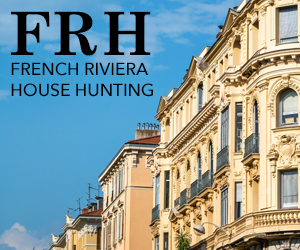Retire in Grenoble Guide
Summary: Retire in Grenoble with confidence, armed with the knowledge from our extensive guide. It covers critical considerations for retirees, from the cost of living and climate to housing, healthcare, and residency choices in Grenoble. We also delve into the social and cultural scene, volunteering options, public transportation facilities, and the city's walkability, helping you make an informed decision.
Grenoble is a popular retirement destination for international retirees due to its rich history, vibrant culture, and stunning natural beauty. Nestled in the heart of the French Alps, Grenoble offers a unique blend of city life and outdoor adventure. The city is known for its high quality of life, excellent healthcare, and affordable cost of living. However, retiring in a foreign country can also present challenges, such as language barriers and cultural differences.
Living Expenses in Grenoble
The cost of living in Grenoble is relatively affordable compared to other French cities. Housing is cheaper than in Paris or Nice, and groceries, utilities, and healthcare are also reasonably priced. However, dining out and entertainment can be expensive, so it's important to budget accordingly.
Climate Throughout the Year
Grenoble enjoys a temperate climate with four distinct seasons. Summers are warm and sunny, perfect for outdoor activities. Winters are cold and snowy, ideal for skiing and snowboarding in the nearby Alps. Spring and autumn are mild and pleasant, with beautiful foliage and flowers.
Healthcare Facilities
Grenoble is home to several top-rated hospitals and clinics, including the Grenoble University Hospital. Many doctors and healthcare professionals speak English, making it easier for international retirees to communicate their health concerns.
Public Healthcare System
France has a comprehensive public healthcare system, and international retirees can apply for coverage under the French Social Security system. However, many retirees also choose to purchase private health insurance for additional coverage.
Residency Options
France offers several types of visas for international retirees, including long-stay visas and residence permits. It's important to research and understand the requirements for each type of visa before making the move.
Outdoor Activities and Parks
Grenoble is surrounded by stunning natural beauty, with numerous parks and outdoor activities available. The city is a gateway to the Alps, offering hiking, skiing, and mountain biking. The city itself is also home to several beautiful parks, including the Jardin de Ville and Parc Paul Mistral.
Local Cuisine and Restaurants
Grenoble offers a wide range of dining options, from traditional French bistros to international cuisine. Some popular local restaurants include Le Tire Bouchon, a cozy bistro serving classic French dishes, and Le Fantin Latour, a Michelin-starred restaurant offering innovative cuisine.
Language Learning Opportunities
Learning French can greatly enhance your retirement experience in Grenoble. The University of Grenoble Alpes offers French language courses for adults, and there are also several language schools in the city, such as the Alliance Française.
Local Culture and Markets
The locals in Grenoble are friendly and welcoming, and the city has a vibrant cultural scene with numerous museums, galleries, and theaters. The city also hosts a weekly market where you can buy fresh produce, local cheeses, and other regional specialties.
Meeting People and Volunteering
There are several clubs and organizations in Grenoble that cater to international retirees, such as the International Women's Club of Grenoble. Volunteering is another great way to meet people and give back to the community. Organizations like the Red Cross and the local animal shelter are always looking for volunteers.
Housing Options
Most retirees in Grenoble live in apartments in the city center, which is walkable and close to shops, restaurants, and public transportation. However, there are also options for those who prefer a quieter lifestyle, such as houses in the surrounding countryside.
Transportation
Grenoble has an excellent public transportation system, including trams, buses, and trains. The city is also very walkable, and many retirees find that they don't need a car. However, having a car can be useful for exploring the surrounding countryside and the Alps.
Retiring in Grenoble, France offers a unique blend of city life and outdoor adventure. With its affordable cost of living, excellent healthcare, and vibrant culture, it's no wonder that so many international retirees choose to call this city home.
About the Author
 Betsy Burlingame is the Founder and President of Expat Exchange and is one of the Founders of Digital Nomad Exchange. She launched Expat Exchange in 1997 as her Master's thesis project at NYU. Prior to Expat Exchange, Betsy worked at AT&T in International
and Mass Market Marketing. She graduated from Ohio Wesleyan University
with a BA in International Business and German.
Betsy Burlingame is the Founder and President of Expat Exchange and is one of the Founders of Digital Nomad Exchange. She launched Expat Exchange in 1997 as her Master's thesis project at NYU. Prior to Expat Exchange, Betsy worked at AT&T in International
and Mass Market Marketing. She graduated from Ohio Wesleyan University
with a BA in International Business and German.
Some of Betsy's articles include 12 Best Places to Live in Portugal, 7 Best Places to Live in Panama and 12 Things to Know Before Moving to the Dominican Republic. Betsy loves to travel and spend time with her family. Connect with Betsy on LinkedIn.




